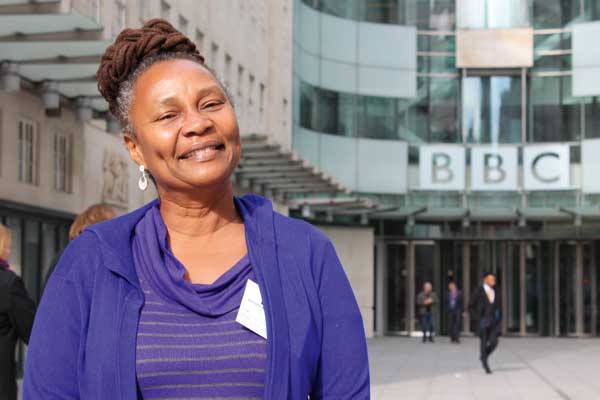No one writes for radio for the money. Or for the notoriety. You’ll never make mega-bucks or see your name in lights. Yet still they write — because it’s challenging and yet also so much fun. There are no restrictions on the air, no boundaries of time or space, no limits on what a character can do or where they can go, in the space of 30, 45, 60 minutes. The only rules are to speak clearly as the writer, taking your listeners with you, and for the cast to have distinct voices, with immediately identifiable differences in tone and personality. If you have to struggle at any point with working out who’s speaking, the spell is broken, the play won’t work.
The playwright Tom Stoppard began his career by writing for radio. You could say it’s where he learnt his craft. Now he’s announced that his latest big project is for wireless listeners only (to be broadcast on the August bank holiday). Dark Side, inspired by the Pink Floyd album, will be, he says, an ‘audio-drama’, incorporating music from the band’s biggest (and longest) selling album. It’s something that’s never been done before — or not quite like this. Stoppard promises us ‘an experience’ that’s worthy of the dreamy, floaty psychedelic album, giving the band’s music another kind of life.
Weirdly, though, Dark Side has been commissioned and made for Radio 2, not — as you might expect — for Radios 3 or 4. It’s been decades since Radio 2 was allowed to broadcast anything but music and the odd bit of light entertainment. Now its success as much-the-most-listened-to network of the BBC means it can poach stuff not normally heard alongside Chris’s chatter and Terry’s jokes.
Over on the World Service, drama was once as much a staple of its content as news, taking plays from and to countries around the globe, building up networks of communication through the artistry of theatre. Now it’s reduced almost to one play, if you’re lucky, once a month. In March and April this precious slot has been taken by the two winners (in English as a second language and English as a first language) of the International Playwriting Competition (you can still find them on iPlayer). I make no excuses for writing about this biennial prize each and every time it’s announced because it’s one of the best things organised by the BBC in association with the British Council and Commonwealth Writers. Well over 1,000 entries for the prize are received, with plotlines and dramas that take us from cockroach races in Qatar to a thriller about forging art in India. It’s a way of crossing continents, making sense of the news, bringing it home.
For the writers, the prize is to hear their play aired on the World Service, with its global audience. For us, the listeners, we get the chance to hear very different-sounding voices often telling stories that at heart are not so different from those we know but whose unusual flavour gives them much greater impact.
On Easter Day Sunflowers Behind a Dirty Fence took us to Kampala, and to the story of Yakobo who has run away from his comfortable home in Entebbe to find the sunflower farm once owned by his grandfather. He’s naive and hopelessly lost in the big city until he meets streetwise Tonnie. ‘Watch the face,’ she tells Yakobo. ‘A good person when they see you they will look at you properly…You understand?’ She explains. ‘A good person will look and see that you are two children…Then they will look away and continue with their lives.’ So what will a bad person do? ‘They start out like good ones. But their eyes follow you and follow you and follow you…’ The bad person will work out what they can get out of you, as Yakobo and Tonnie are soon to discover.
The essence of the plot, child trafficking, we hear about every day. But Angella Emurwon’s play (directed by Rosalynd Ward, with Arnold Oceng as Yakobo and Vanessa Babirye as Tonnie) took us straight to Kampala, where we could feel the heat and smell the market, the dust, the bloody meat, the diesel fumes. We could see the sunflowers, standing tall and yellow behind the dirty fence.
This Sunday The Fisherman, Janet Morrison’s prize-winning drama (directed by Helen Perry and starring Petra Letang, Ram John Holder and Angela Wynter), was set in Kingston, Jamaica, where Latoya and Jevaughan have been left with their grandparents while their mother seeks her fortune in New York. The generations quarrel, a familiar story, and Latoya, now 16, runs away, only to get picked up by the local sex-trafficking gang, also familiar. But Morrison, very ambitiously, turns the domestic heartache into a thriller, with gunmen on the loose, fishermen giving chase, and a drunken husband prowling around.
It sounds unworkable, but on air you can do crazy things and get away with it. All it needs for the imagination to be pricked into action is a cleverly placed thought, a true portrait.






Comments